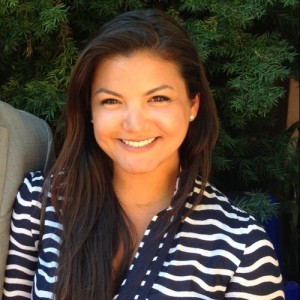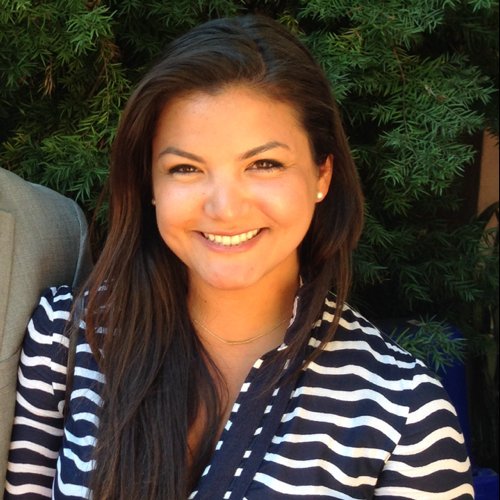 In addition to her role as Student Government Association President, Elise Ablin ’15 served as the student voice for the College of Arts and Sciences throughout the entirety of the presidential search, which began following President Lewis Duncan’s announcement to step down last summer.
In addition to her role as Student Government Association President, Elise Ablin ’15 served as the student voice for the College of Arts and Sciences throughout the entirety of the presidential search, which began following President Lewis Duncan’s announcement to step down last summer.
Her busy schedule leaves Elise with rarely a moment to spare. Luckily on Sunday, Feb. 22, I had the opportunity to sit down with this student leader to discuss everything from her role and experience on the search committee to life as a Kappa Delta.
David Matteson: What was your reaction when you first found out that as part of your term as SGA president you would be serving on the presidential search committee? How do you even begin to prepare for such a huge endeavor?
Elise Ablin: At first I was very surprised that President Duncan was even stepping down because I received no prior warning or advanced notice. Then, I received a phone call from Allen Keen, who served as the chair of the search committee, asking if I would like to take part. I felt very honored to be included as a student.
I was also extremely surprised at how complex the process was. We were working over the summer to find the search firm, to right when we got back [to school], to figure out what exactly what we were looking for in the new president—characteristics, personality attributes that were best suited for our community. I think that the depth of the process was the most surprising to me. . . It’s very extensive.
DM: In addition to serving on the presidential search committee, you are currently SGA president, a Kappa Delta, and a full-time student. With all of this responsibility, how do you find the time to blow off steam? What exactly do you do to relax?
EA: Well, honestly, last semester I didn’t do much outside of those things. This semester, I have been working out consistently, which has been awesome and I feel great. I’ve started relaxing more on weekends, just being outside.
Last semester was really a grind though. That was probably the hardest I have worked in my time here. But all of the commitments I have made I thoroughly enjoy, and I am so glad to be apart of them, that to me it’s worth the effort I am putting in. Especially with student government and the search committee, I have really learned how to prioritize all of those tasks—it didn’t involve that much sleeping, but I’m very happy that this semester I have a little less on my plate.
DM: So, do you have any tips for prioritizing?
EA: I really love the Outlook Calendar. It’s a really good way to stay organized; I live by my online calendar and by my task list. I have a pretty good sense of how long certain tasks should take me, so now mapping out my day has gotten lot easier.
(Laughing) As for advice, I don’t know because it has taken me a really long time just figure that out.
DM: How has the experience through SGA affected your professional goals and aspirations? Should we be planning to see your name on the US ballot in the future?
EA: I don’t know (Laughs). I don’t know how it has affected my professional aspirations, but it has definitely made me appreciate my Rollins experience so much more. I now feel so committed and passionate; really, I feel a lot of ownership over the success of the school and the students here. Committing myself to SGA has really made me see the value in a Rollins education, and how unique our experience here is.
Especially when I was going through job interviews—that really set me apart. I was interviewing over the summer for positions at the bank I was working at. Out of 150 interns, I was selected to interview among 20. Many had far more technical skills than me—accounting, finance, knowledge of the case studies—but when it came to articulating their school experiences, they had really only participated in their majors. So the Rollins experience, being able to say that I lead student government and I am in a sorority, and I have done all of these things, which not only contributed to my academic growth, but also my personal confidence and my ability to work with other people. . . It’s a whole skill set that many are missing out on.
DM: So, here’s the dreaded question for all seniors: What exactly are your plans after graduation?
EA: (Laughing) I got the job! So, I am working for BMO Harris Bank in Chicago, and I am joining their commercial analyst development program.
DM: You’re from Illinois right?
EA: Yes, so I am going to be moving home, which is the dreaded part of that after graduation question. (Laughing) I’ll be there until I am forcibly removed or driven crazy!
DM: So you’ll be living with your parents? Do you have a good relationship with them?
EA: Yes, I do! (Laughing) They’re funny.
DM: (Laughing) They’re funny?
EA: Yeah! (Laughing) They’re funny.
DM: That’s great. Okay, so who are your role models?
EA: I really love female comedians, like Tina Fey and Amy Poehler. Basically, all of the women on SNL because I think what they do is so admirable. They’re in this business that is historically mostly men, still is. But they are so confident in themselves that they can go crazy in front of millions and millions of viewers. And it’s hysterical. They are all so smart, quick-witted, and fast to the punch. I really think that they are phenomenal.
DM: So, I want to switch gears and talk about the experience of the presidential search committee; as a confident woman, you’re on this committee that is comprised of mostly men. What was that experience like for you? Was it ever uncomfortable?
EA: Actually, it was never a problem. What my original concern going into the process was my age and experience. This whole committee was made up of these incredibly talented, extraordinarily successful individuals who have just made incredible lives for themselves. I was really nervous going in that my input wouldn’t be as valuable because I am so young.
But I found that to be completely untrue. The search committee members were so interested in what the students had to say. It was such an incredible experience for me because I think as students, we often get lost in this Rollins culture where you really don’t have to interact with faculty that much or staff that much if you don’t want to. But they really make an effort to put students first, and that was so incredibly apparent to me on this committee. They really value our input.
Also, part of the search process was not only finding a person that is the best fit for Rollins, but it was also a marketing effort on our part to try and sell the school to these candidates. Our final four candidates were all sitting presidents, so they have incredible jobs that they don’t need to leave. Every time I talked about Rollins to these candidates, it made me love the school even more—I was so supported, engaged, and it made me feel part of a group. I felt like more than just a student; I was a community member.
One thing I will say is that as a woman, I was very conscious of keeping a diverse pool of applicants. The committee was very conscious of that. We wanted to make sure that we weren’t just looking at the candidates people “thought” we should have. I mean there are certain expectations: this person should have a doctorate degree, should have been a faculty member, and should have been a provost. There’s a very traditional line-up of what a president’s background should look like. And when we were looking at the applicant pool, we were definitely looking for someone with a nontraditional background. So we looked at a lot of candidates.
DM: What would you say to other young women who are looking to succeed in male dominated institutions like business and politics?
EA: I think confidence is the key. At least when I was young, girls weren’t expected to do well in math. It was always, “That’s okay, girl’s aren’t supposed to be good at math.” Or, we never were expected to run the mile, because we were girls, and girls don’t sweat. My parents tried so hard to steer me away from those gender based stereotypes.
My most formative years were at an all-girls’ boarding school. It was a very interesting environment because there was no competition over guys. Nothing there was traditional. When we were in school, we were committed to school. I think I learned there that women are totally capable of anything, and the true deciding factor is whether you think you can or not.
DM: So wrapping up, I want to briefly talk about sorority life. You’re a member of Kappa Delta; how has the Greek experience impacted your view here at Rollins?
EA: Sisterhood to me means unconditional support. I think it is tough at Rollins your first semester. I think the key to succeeding here is finding a group or an organization that allows you to connect to more than just some friends. Once you feel immersed in something, that’s when you really start enjoying yourself here. Because the community is so small, I think it is crucial to be involved in something, I mean anything really.
It was really helpful finding a group of women who I knew were always going to be there for me. I think the peek of my happiness was when I nervously returned from abroad—I had been immersed in a different culture and I hadn’t seen my friends for a semester. But when I came back to Rollins, it was like I had never left. My friends and sorority immediately embraced me—they were including me right back in the sisterhood, like nothing had changed. It was nice to come back and feel so loved.
I hope that I helped make the school better for someone—I made someone’s experience better. I think that’s all we try to do with SGA, that’s our only goal: to make the school as best as we possibly can for the students who are here. I have had such an incredible experience. So, if I have made Rollins better for just one more person, then I will leave happy.







Be First to Comment